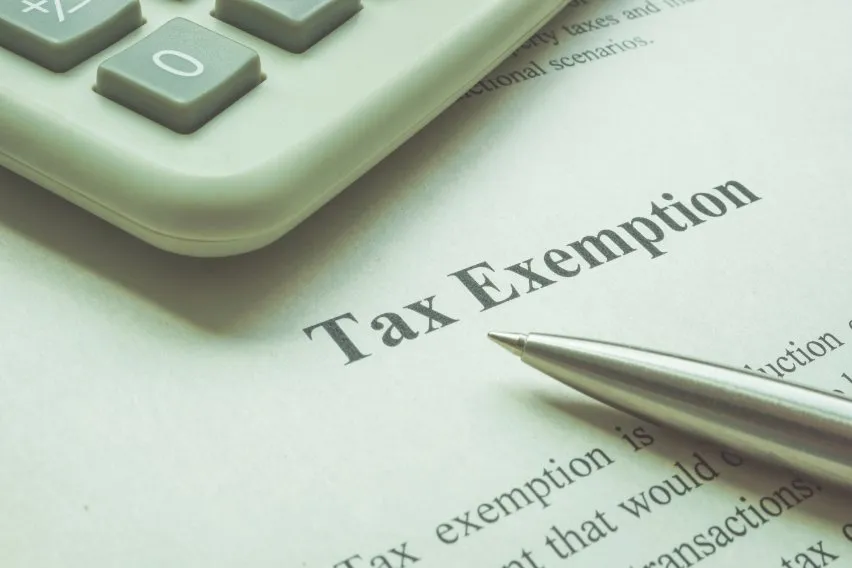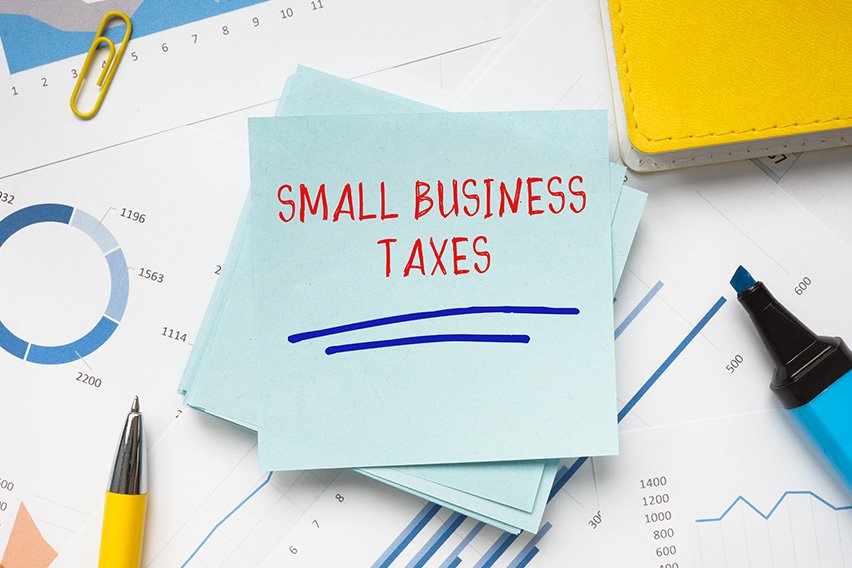Tax Exemption Requirements for Organizations

Every person and organization would love to qualify and be eligible to not have to pay government taxes. But is this even possible to obtain a tax exemption? Yes and no, and it works differently for individuals and organizations.
There are some circumstances where organizations do not have to participate in paying taxes, and understanding these exemptions is crucial for anyone navigating how to pay taxes in Canada. But are things such as property taxes, capital gains, and employment contributions exempt? What about an investment income or your age? Is there a form you need to fill out to claim related investment exemptions? Does it work differently for different types of business owners or if you have owned land? There are some specific situations and circumstances that apply to make a claim.
In accordance with the Canadian Income Tax Act, some types of organizations and businesses are fully exempt from taxes as long as they aren’t for profit. Read on to learn everything you need to know about tax exemption requirements for organizations in Canada. We’ll dive into what qualifies you to be tax exempt, who is actually exempt, and how to apply for a tax exemption.
Table of Contents
What Is a Tax Exemption for an Organization?
What Qualifies You to Be Tax Exempt?
Who Is Exempt from Paying Income Tax?
How Do I Apply for Tax Exemption?
What Is a Tax Exemption for an Organization?
A tax exemption for an organization is the ability to not have to pay certain taxes. This can relate to certain goods and services and there are some requirements and criteria to meet. Non-profit organizations, for example, are exempt from paying taxes.
This is outlined under Part 1 of the Income Tax Act in Canada. It’s worth mentioning that this exemption is only specific to income tax. As well, it’s only relevant for the specific portion of their fiscal period, and they must also meet non-profit organization requirements.
To be considered as a non-profit organization, some of the criteria to meet include:
- That the organization is not a charity
- That the organization is dedicated to social welfare, pleasure or recreation, or civic improvement
- That the organization operates for the sole reasons outlined above, and there is no goal of generating profit
- That the organization cannot pay any income to proprietors and their personal benefit. This also includes members and other shareholders of the organization.
It’s also important to highlight that there is no specific business structure an organization must adhere to. This is both provincially and federally. Essentially, this means the organization can be an unincorporated association, a corporation, or even a trust.
If you’re not a non-profit organization, some religious and charitable organizations are also exempt from paying certain taxes.
What Qualifies You to Be Tax Exempt?
Qualifying to be tax-exempt means certain transactions and income aren’t subject to provincial or federal taxes. There are many taxpayers across the country who often qualify for personal tax exemptions. This helps reduce the overall tax bill they have to pay, similar to a deduction.
As well, provincial and federal governments often provide an exemption to some organizations. However, for an organization to achieve this exemption, it must operate to serve the public. This can be a charitable organization or a religious organization, for example.
Non-profit organizations are outlined in paragraph 149(1)(I) of the Canadian Income Tax Act. As well, a chamber of commerce, a board of trade, and an agricultural organization are outlined in paragraph 149(1)(e) of the Canadian Income Tax Act.
A non-profit is outlined as being either a society, a club, or an association that is also not a charity. Its main purpose must be for one of the following:
- Pleasure or recreation
- Social welfare
- Civic improvement
- Any other reason except for the sole purpose of generating profit
The Act describes that in order to be considered as a non-profit, there can’t be any income provided or paid to shareholders, members, or proprietors. However, income can be payable if it’s dedicated to an association, club, or society. In this case, the association, club, or society must help promote Canadian amateur athletics.
If all of these requirements are met, a non-profit organization is exempt from paying tax under Part I of the Income Tax Act.
Managing all your business expenses when it comes to tax purposes can be a challenge to stay on top of. It can be a confusing and tedious process to ensure everything is accurate. FreshBooks accounting software offers an incredible solution to manage all your accounting and expense needs.
Who Is Exempt from Paying Income Tax?
Apart from certain types of organizations, such as charitable organizations or religious groups, some people are also exempt from paying income tax. There are certain requirements and criteria that must be met to achieve this status.
According to the Canada Revenue Service (CRA), the liability for income tax is based on an individual being either a non-resident or a resident of Canada. Residents are subject to tax on any income earned throughout the year. Non-residents aren’t typically subject to income tax unless income is earned from within Canada. Additionally, individuals who receive eligible dividends may benefit from the dividend tax credit, providing a potential reduction in the overall tax payable on such income.
With all of that said, Section 10 of the Income Tax Act outlines which income is not subject to income tax. This is known as exempt income. There are going to be a range of types of income that are exempt as long as they meet the conditions and requirements.
Every individual in Canada is required to file an income tax return on an annual basis. There are different tax rates for each level of income tax across Canada. Here is a breakdown of the income tax rates for each province and territory for 2024:
- Alberta – 10% on the first $148,269 earned
- British Columbia – 5.06% on the first $47, 937 earned
- Saskatchewan – 10.5% on the first $52,057 earned
- Manitoba – 10.8% on the first $47,000 earned
- Ontario – 5.05% on the first $51,446 earned
- Quebec – 14% on the first $51,780 earned
- New Brunswick – 9.4% on the first $49,958 earned
- Nova Scotia – 8.79% on the first $29,590 earned
- Prince Edward Island – 9.65% on the first $32,656 earned
- Newfoundland and Labrador – 8.7% on the first $43,198 earned
- Nunavut – 4% on the first $53,268 earned
- Yukon – 6.4% on the first $55,867 earned
- Northwest Territories – 5.9% on the first $50,597 earned
Keep in mind that as you earn more income and you hit a higher tax bracket, the income tax rates will increase. But, there are still some types of income amounts that are non-taxable. Some of these include:
- Most lottery winnings
- Some gifts and inheritances
- Some amounts paid for disability or to a war veteran for war service
- Certain GST/HST tax credits, as well as the Canada child benefit (CCB) payments
- Certain amounts received in return from the establishment of a life insurance policy
- Union strike pay
- Most amounts that you are eligible to receive in return from a tax-free savings account (TFSA)
Even though some of the amounts outlined above are tax-exempt, it’s critical to understand that income earned from any of those amounts is taxable. For example, if you win the lottery and invest your winnings, any interest you earn is taxable.
How Do I Apply for Tax Exemption?
One key piece of information to understand is that non-profit organizations cannot also be charities. This is outlined and defined in the Income Tax Act and it’s because there are distinguishable differences between the two.
If you’re a charity, you can apply directly to the Canada Revenue Agency (CRA) to become registered. Once you’re registered, your charity is then exempt from any income tax, which is also outlined in paragraph 149(1)(f). From here, you can begin to issue any charitable donation receipts if you need to do so for tax purposes.
There are four main steps to take to become a registered charity and achieve tax-exempt status. You are going to need to do some research to become a registered charity. On top of this, you’re going to need to set up your organization before you even begin the application process. This means establishing your charity as a legal entity.
Once you have all the relevant information in place, you begin the application process. Everything is done through the CRA website and the My Business Account (MyBA) portal. A good first step is to go through the application document checklist. CRA will ask you a handful of questions, and depending on your answers they will create a checklist for you. It will break down all of the documents you will need to submit with your application.
You can go through the process to apply for registration for the first time, or pick up a previously started application. It’s important to be prepared to give as much detailed information as you can for each of your charitable activities. Some of the documentation you might need to upload include:
- Financial statements
- Pamphlets
- Agreements
- Governing documents
Keep in mind that you can only submit your application once and you must include the mandatory documents. Once the application is submitted, you can track the progress through the MyBa portal. Simply select “view application status” to get updates.
Non-profit organizations do not have to go through the registration process, and this is at both the provincial and federal levels. However, a non-profit is not allowed to issue any tax receipts when it comes to membership fees or donations received.

Key Takeaways
The intended purpose of being tax-exempt is to reward organizations that meet certain legislation. These details are outlined in the Income Tax Act. Non-profit organizations are automatically exempt from income tax. However, they must be in business for specific reasons in the tax year.
A non-profit organization must be dedicated to social welfare, pleasure or recreation, or civic improvement. Some charitable organizations are also exempt from paying taxes. To qualify for this status, they must apply to become a charity through the Canada Revenue Agency.
Business owners can achieve a little extra protection from taxes if you meet some of these exemption requirements. There are also some other criteria for sole proprietorships or if you’re enrolled in the Canada pension plan.
Some other related circumstances and other information can also lead to you being able to qualify for certain exemptions in the tax year. For example, there can be a property tax exemption for certain property as long as you’re eligible and qualify.
FAQs on Tax Exemption Requirements
What are the two types of exemption?
Two types of exemption in Canada can relate to income taxes or sales taxes. Some organizations are exempt from income taxes, as well as the Goods and Services Tax (GST) and Harmonized Sales Tax (HST). As well, there are some property and land taxes that can become exempt depending on specific requirements, such as the assessed value on residential property.
Are you eligible to claim an exemption from salary income?
When you file your income taxes, which is mandatory for all Canadian residents, you might be eligible to receive a certain amount back. You might also be able to claim a deduction for certain employment expenses, like legal fees or accounting fees.
What are the benefits of filing exempt?
The main benefit of being tax-exempt is to lower the total amount of income tax you owe. When you can reduce this amount, you can save money or get money back in return.
About the author
Kristen Slavin is a CPA with 16 years of experience, specializing in accounting, bookkeeping, and tax services for small businesses. A member of the CPA Association of BC, she also holds a Master’s Degree in Business Administration from Simon Fraser University. In her spare time, Kristen enjoys camping, hiking, and road tripping with her husband and two children. In 2022 Kristen founded K10 Accounting. The firm offers bookkeeping and accounting services for business and personal needs, as well as ERP consulting and audit assistance.
RELATED ARTICLES



 What Is a Digital Wallet and How Does It Work?
What Is a Digital Wallet and How Does It Work? 10 Best Proposal Software for 2025 in Canada
10 Best Proposal Software for 2025 in Canada What Does Net 30 Mean on an Invoice? A Simple Definition for Small Businesses
What Does Net 30 Mean on an Invoice? A Simple Definition for Small Businesses How Much Cash Can You Deposit?
How Much Cash Can You Deposit? Tax Deductions for Small Business Canada
Tax Deductions for Small Business Canada